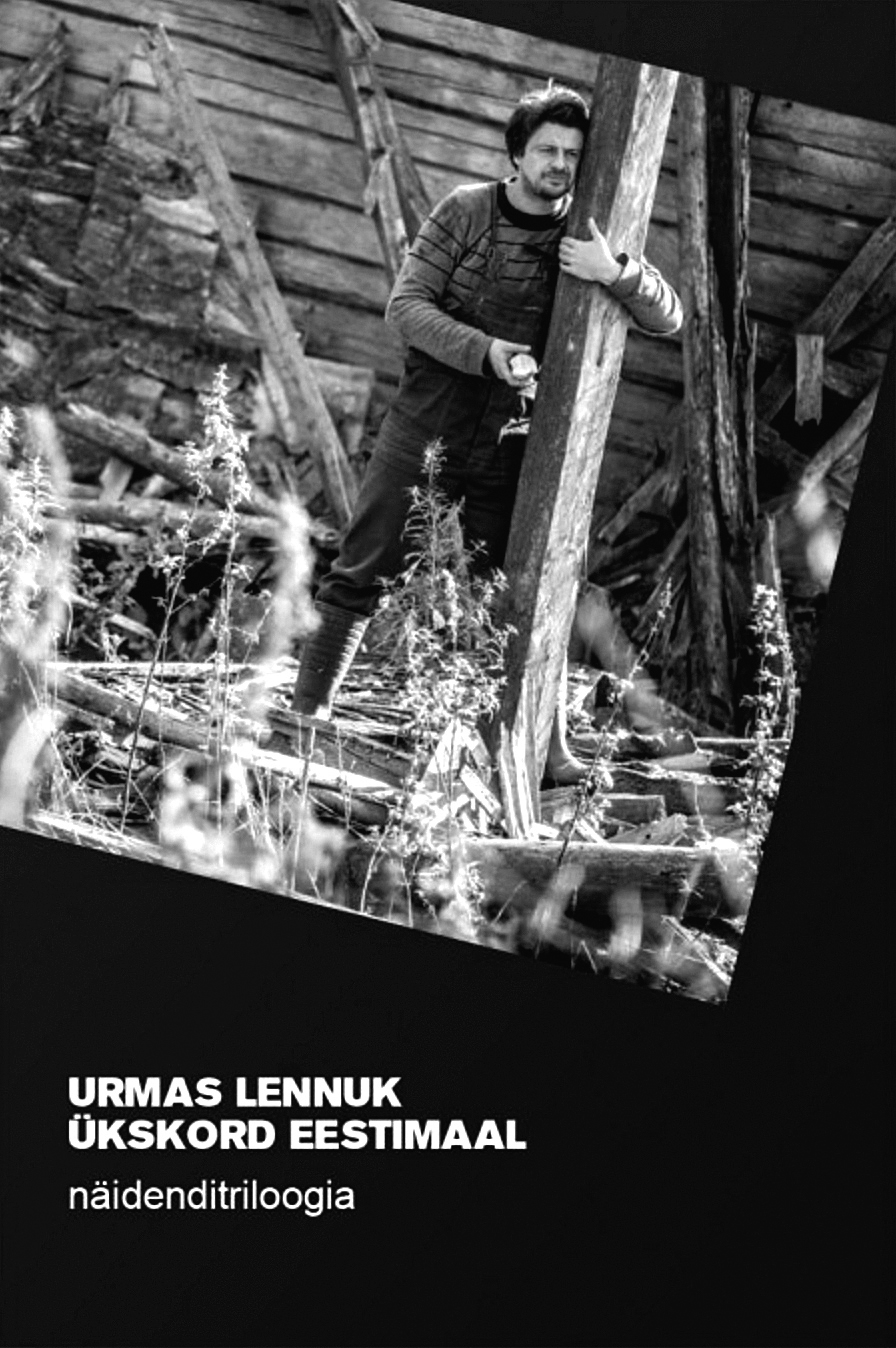Urmas Lennuk, Ükskord Eestimaal (Once, in Estonia)
Viljandi, Ugala teater, 2015. 294 pp
ISBN: 9789949387342
Urmas Lennuk (b 1971) has been one of Estonia’s chief playwrights in the new millennium. Although he likewise stands out as a high-performing director, a scriptwriter for several well-known Estonian television series (including the country’s most long-running and popular soap opera, Õnne 13), and the author of one children’s book, he is known foremost as a dramatist. He has won on two occasions the Estonian Theatre Agency’s Play Competition, which aims to highlight new works of Estonian drama. His first win came in 2001 with the play Rongid siin enam ei… (The Trains No Longer…), the opening performance of which took place at Viljandi’s Ugala Theatre a year later. The same theatre has now published Lennuk’s first book of plays – Once, in Estonia, which includes three texts: The Trains No Longer… and two conceptual sequels titled Päeva lõpus (At the End of the Day, 2008) and Ema oli õunapuu (Mother Was an Apple Tree, 2015).
The drama trilogy’s title is seemingly vague, but its precision becomes clear when one reads through the texts. Lennuk attempts to map out Estonia’s intellectual state in the early 21st century, selecting a typical Estonian village as the setting for his works. The dialogue is colloquial – Lennuk’s style of writing doesn’t attempt to fit with poet-dramatic theatre games in any way. The content and attitudes presented in the three plays are in clear harmony with Lennuk’s description of himself on the reverse side of the front cover: “Urmas Lennuk is certainly not an innovator. He is not a revolutionary, a dissenter, or a reformer. Urmas Lennuk is a typical middle-aged father who lives on a quiet street in a small town.” Although the trilogy is not set in a town, its two main characters – the brothers Peter and Jakob – resemble Lennuk’s description of himself. They are simple and ordinary men who aren’t endeavouring to save the world, because they need to manage life with themselves, each other, and their loved ones. The trilogy’s cast list is limited, with altogether nine characters across the three plays. In the first, The Trains No Longer…, Peter and Jakob’s lives are rocked by the death of their mother, Hellen. A woman named Marion plays an important role in the second and the third plays, with romantic interest (or the impossibility of it) connecting her and the brothers. In addition to Peter and Jakob, Marion’s daughter – who bears the same name as the brothers’ late mother – enters the scene.
The eloquence of Lennuk’s three plays is revealed through reoccurring plot motifs – one of the brothers is leaving the gradually dwindling village, the other returning, and then vice-versa. The motif of leaving and returning was not chosen randomly. Although Lennuk’s dialogues are fluid, light, and interspersed with warm humour, a rather sombre situation is revealed behind them – life in ever-more-peripheral rural Estonia, which is slowly but surely draining away. As opportunities arise, its natives move away to bigger cities, and from there on to other countries. Those who remain are preparing to die, one after the next. The village is composed more of memories than inhabitants. Recent Estonian statistics are the backdrop to this consciously amplified motif: a negative birth rate, tens of thousands of Estonian working in Finland and dreaming of Australia, the irrefutable withering of rural life, alcoholism… Schools, post offices, and local shops are being closed or moved to larger urban centres. True, it is possible that the trends could shift in the near future, a handful of years after the publishing of Lennuk’s trilogy, and rural immigration will start to exceed emigration; however, Lennuk has managed to convincingly conjure this very moment in time. At the same time, his vision cannot be seen as dismal or hopeless – although the brothers take turns seeking and losing their fortune in the greater world, something keeps them tied to their home in the middle of nowhere, and at the end of the trilogy, they go fishing together, their pockets filled with steaming home-boiled potatoes.

